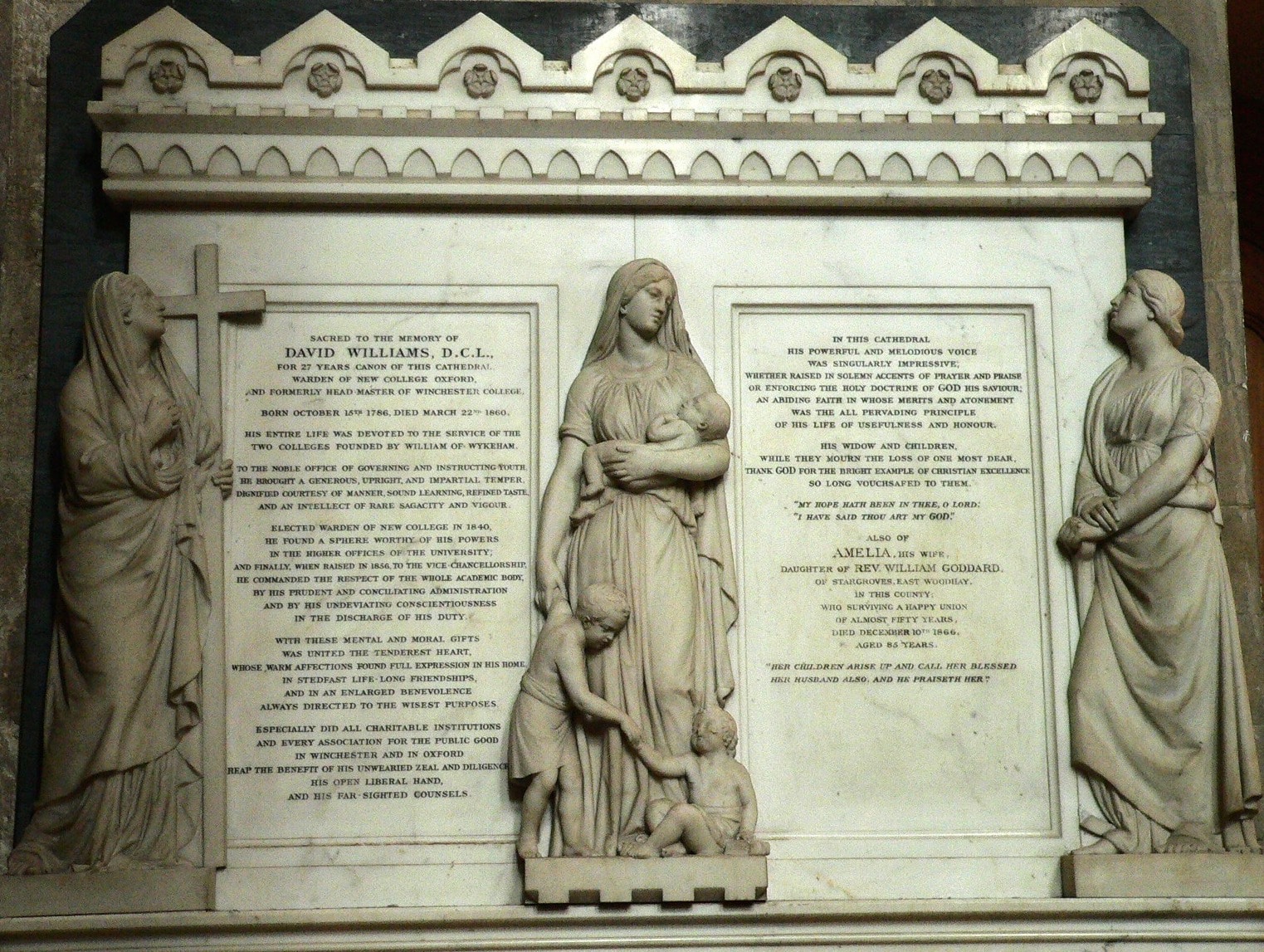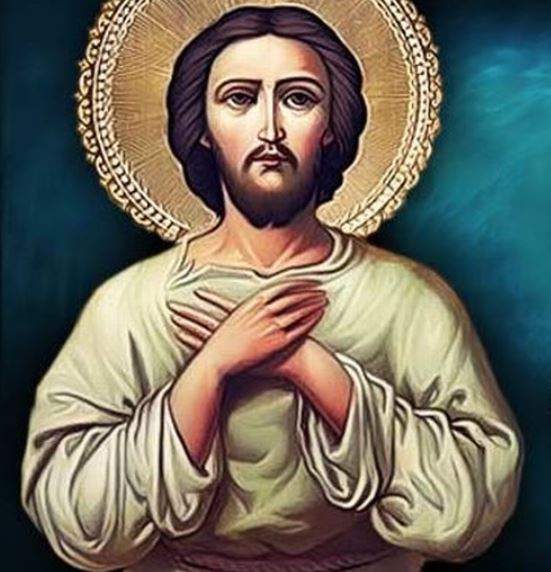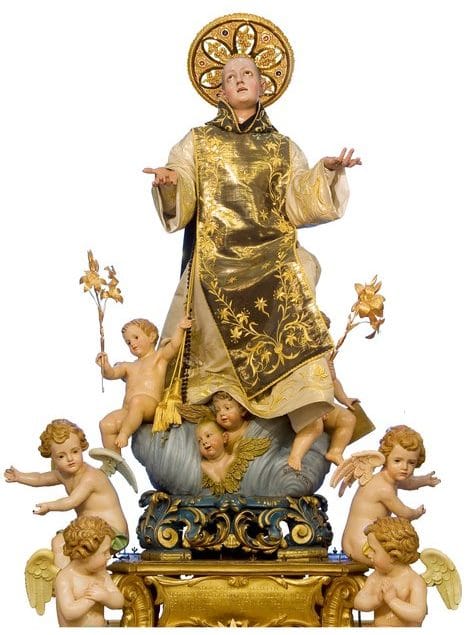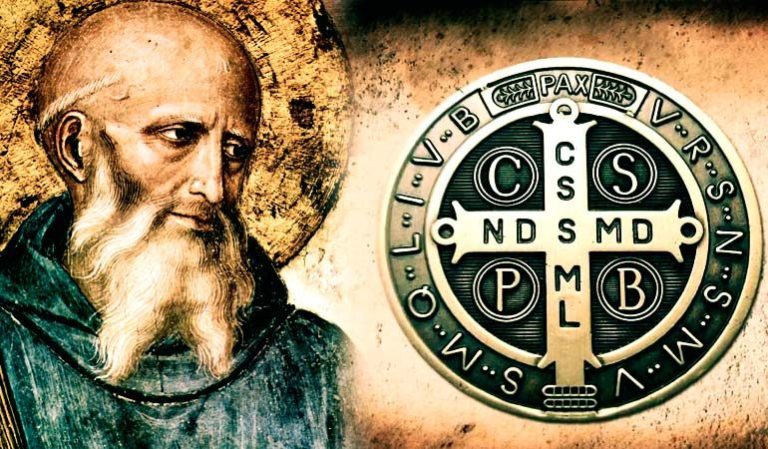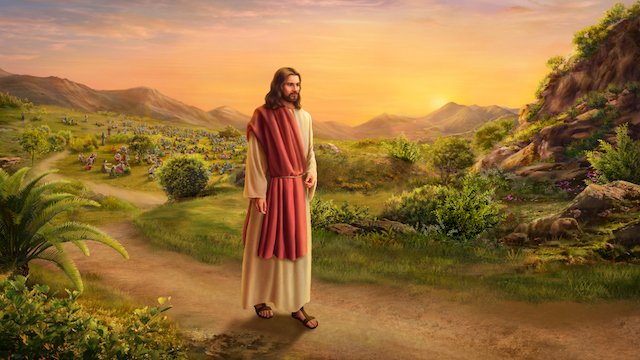Faith, Hope and Charity, the Theological Virtues
The theological virtues are characteristics that every Christian or believer in God must possess, as we know they are Faith, Hope and Charity. The human being in general must possess them and put them into practice in each moment of our daily lives.
virtues in general
We will begin by defining that virtue is not something that the human being is born with, nor is it a study title or something that we put on ourselves; we cannot even say that it is a natural gift, since otherwise it could not be considered a virtue.
What we can say about it is that it is considered a human condition which translates as a disposition and capacity for virtue, facilitating the acquisition of these through adequate means that the human himself puts into practice.
Likewise, virtue is considered the disposition, as we said before, of the human being, which is acquired by conscious and free action according to the good.
For virtue to be a virtue, it really must be habitual, not an occasional or isolated attitude. It is considered second nature when it comes to thinking, reacting, acting, etc. The opposite is vice, it is also a habit that is acquired by acts opposed to good.
The Theological Virtues: Faith, Hope and Charity
When we talk about the theological virtues Faith and Hope , and finally Charity, people are predisposed to put up with a speech about a sermon or prescription far from their own interests. The theological virtues are usually made for few people, since most do not practice or know them deeply, especially when they are busy with worldly affairs.
This is somewhat theoretical, since sadly for most mortals, this touches very little interest and life itself. This should not happen like this, since the theological virtues: faith, hope and charity should be characterized by becoming the Christian’s habitat or environment, even from everyday life and the materialistic adversities of the entire world.
theological virtues
As we specified in previous paragraphs, these are three: faith, hope and charity . These were implanted by God in each soul of the living being on the day of baptism, which we must make flourish with our attitude, prayer and sacrifice.
End of the theological virtues
God himself granted us the theological virtues Faith, Hope and Charity, so that we learn to act in relation to the divine, that is, as his children that we are and thus help us overcome the natural impulses that we feel towards others such as selfishness, pleasures and comfort.
Characteristic
The theological virtues present a series of characteristics that clearly indicate their function in our lives, by the work of God to all human beings, among them we can mention:
- They are gifts from God Himself, not achievements of man.
- They will always require our collaboration freely and with awareness for perfection and growth.
- They are not virtues only theoretically, but a way of direct application in our daily lives.
- The three virtues faith, hope and charity always go together.
The Theological Virtue of Faith
As the Bible itself says, Faith is defined as having the certainty of what is not seen, that is, it is believing in the things that we request from God in our lives without the need to have to see it physically, but it is having the confidence to believe that it is already done without even seeing it.
Definition
It is a gift, a divine blessing through which we recognize God, we see through it his hand in each of the situations we live in daily life, just as we can see situations as God himself sees them.
Therefore, the virtue of faith is not something theoretical, without the form of doctrines that we must learn. It is more than that it is a light with which we can understand the things of God.
Characteristic
- The virtue of Faith can be defined as an encounter with God, his teachings, examples of his life and salvation. With true faith in God, the human being professes a free response to that direct encounter with God, it is also the total surrender to him with will and intelligence.
- Faith is a simple virtue, it is not about speeches or abstract matters, it is a reality of attachment to God, just like Mary and Abraham.
- It must change our life, it must be fully demonstrated in the life of each one of the believers in God. For this reason we must affirm that we must live by Faith.
- We can consider Faith as experience, or the teaching of God himself privately with each of his children. Those who have faith enjoy the presence of God. It is knowledge of the very spirit of God, which grants it to us to have a private relationship with Him.
- These privileges or moments with God must be manifested in our souls through pain, sacrifice, trial situations, at times when the greatest humility of heart and greater detachment from ourselves is required.
- It is objective, through faith, we believe in a God who reveals himself to us through his own word, received by the Church. We need to know this word, learn and put it into practice in our lives, as well as feel it alive in us.
- Having faith always ends in commitment to God. It is our commitment to God, we must be faithful to his teachings, his laws and in total surrender to Him. There must be a commitment in us to defend ourselves with our own word and living testimony; feed it with continuous reading of the Bible and make it public around our daily life.
The Theological Virtue of Hope
Due to fear, anguish in the face of life situations, people fall into discouragement and their thoughts become negative in that there is nothing to do, that nothing can be achieved. However there are many other people who think that hope is imaginary or being naive.
But we must ask ourselves, how will Christians react to evil, life’s problems and difficulties? Should a Christian have these attitudes in his life? Is it true that God manifests himself in the life of each one of us? What will be the greatest aspiration of a Christian?
Definition
The virtue of Hope is through which we wish God as the Good of the Supreme Creator, through this virtue we have the firm confidence of achieving happiness as well as the way to achieve it.
Basis
We must live confident in having hope since we believe in Christ who is an omnipotent and kind God, and therefore does not fail his promises. Ecclesiasticus also specifies it: Know that no one expected Jesus to be confounded. Who, who remains faithful to his teachings, will have been abandoned by him, or who, who would have called him, will have been neglected by him? Since the Lord has pity and mercy (2, 11-12).
effects
- Place in our hearts the desire to earn heaven and God’s possession, discarding or moving away from earthly goods.
- It makes our prayers powerful.
- It gives us encouragement and dedication in the fight, granting us success.
- Prepare for the mission entrusted to us, since we must ensure that a number of people reach the possession of God.
obstacles
Presumption: having the security of God to heaven and the pertinent grace to be able to reach Him, without placing on our part the means that we need.
Despair and discouragement: when we feel tempted or defeated in the struggle, we get discouraged and think that we will never be able to change and the despair of salvation begins.
The Eucharist, pledge of the world to come
This hope of attainment of the Kingdom is realized in a mysterious and real way in terms of Eucharistic communion. Communion is the beginning to enjoy the promise of heaven and increase the desire for eternal possession. It is a future vision to eternal life on earth. And it is the security and certainty of our hope.
The Theological Virtue of Charity
It is because of hope that we have confidence in the fulfillment of the promises of Jesus Christ. Through Charity we act in relation to what the Gospel teaches us. These two theological virtues (Faith and Hope) have no meaning if they do not have the meaning of true supernatural love or Christian charity.
Definition
The virtue of Charity is that through it we can profess love for God and our brothers in Christ. By this same virtue God makes us sharers in his love.
This experience of God’s love is lived by many men. Saint Paul says: “he loved me and gave himself up for me”. Those who experience this love have been satisfied and leave all security of life in demonstrating the love of God.
Characteristics of God’s love
- The love of our Father God is the most true and secure: it has always existed since before our birth. Once it is achieved, he feels the sensation of having wasted time, due to the anguish for so many things that did not deserve to have fought for them.
- This love of God is firm and solid as the rock mentioned in the gospel. The love of humanity must be sustained constantly, it must be fed continuously to prevent it from going out.
- It’s fresh, beautiful, new love all the time. Saint Augustine shows us his revealing experience in these words: “Late I loved you, beauty so old and so new, late I loved you! And you were so inside me and I was outside, and outside I was looking for you; and deformed as I was I leaned over the beautiful things you created. You were with me but I was not with you… You called me, you cried out and broke my deafness; you illuminated and cured my blindness; you exhaled your perfume and I absorbed it and now I want you; I tried You, and now I feel need and thirst for You; you touched me and I wished for the peace that comes from you!
- Eternal love, this is the love of God, it does not end, it tires, it has no limits. If there are difficult situations, it is not because of God.
Other characteristics of love
- Sincerity and purity: this is a love characterized by the fact that it is born from within the person himself. It is not considered a love of appearances, we must bear in mind that Jesus Christ always sees the heart of people and his intention, that is why he praises the repentant sinner and the hypocrisy of the Pharisees throwing it in her face.
- Service to those in need: help the person who has needs in soul and body. Jesus heals illnesses and his kindnesses are characterized by feeding those who need it, comforting the sad, curing illnesses, offering forgiveness, enlightening the heart and mind, in short, this is contained in serving others.
- Forgiveness and mercy: they are considered the most beautiful expressions of the love that God professes to his children, He gives us an example through his Son Jesus Christ.
- In relation to the forgiving phase, perhaps what costs the person the most is forgetting what they may have done to them, insults or defamation. Only the grace of God grants peace, forgiveness and love towards the slanderer.
- Universality and delicacy: the universal: it must be characterized by loving everyone, by being children of the same God. Delicate: seeks to be present in small things, has characteristics and sensitivity in each different person.
Saint Paul’s hymn to charity (1 Cor, 13, 1ss)
Patience: it is not about getting uncomfortable in the face of adversity, but rather holding on until better times come, nor is it valid to say “what is going to be done”.
It is knowing how to endure with positive thoughts facing God, since He overcomes us in the face of indifference, setbacks, bad situations, ingratitude, since He rests in God.
She is good: try well, sweetness, goodness
She doesn’t have the envious characteristic, nor does she bother about giving.
She is tolerant, she is not interested
He is not impolite, on the contrary, he waits and forgives everything.
Characterized by delighting in the truth
Charity will never pass
Summary of the law
Jesus in his word teaches us the love of God above all things and the love of our neighbor as the main commandment of his laws. He preaches two teachings as one commandment.
Which means that the love of God and for God when it is sincere within our hearts, makes us feel love towards others as our brothers. Charity has a divine characteristic of eliminating selfishness and instead makes us live given to generosity, kindness, that is, love itself.
When fights and selfishness happen, God cannot dwell within that soul. Only when there is simplicity, detachment, service, forgiveness, openness, is God surely there in that soul.
The love of our neighbor seeks the good of humanity, this is within the reach of our works: friends, family, study and work colleagues, those who cross our daily walk through life, even the people who may have injured.
conclusion
The three greatest virtues as we mentioned in previous paragraphs are Faith, Hope and Charity. They are called theological since their main axis is the figure of God.
Through Faith we stick to what Jesus taught us in his word. Through hope we obtain from God his support to face the difficult situations that may arise in life.
Charity allows that through it we love in every way and with pure and true love for God, with our good actions through Charity we can one day see God face to face.
These are the virtues that are considered more developed since through them we perfect others that man does not reach so easily in the course of his daily life.
All creation exists as we know by and through the Word of God the Father. Given the teachings of the beginning of time, we can say that the three virtues were strengthened based on the Incarnation of Jesus.
The motive of Faith is the authority of God Himself on which man must faithfully believe. God is not wrong, he is infallible and he cannot make any of us wrong.
Hope is strengthened through the Incarnation also of the Word. Our Faith is strengthened through it, and not satisfied with it, it also moves our Hope. The three virtues go together hand in hand. Through this virtue we hope and think of the Supreme good.
Likewise, this virtue makes us feel encouraged in the face of the discouragement of the circumstances of the problems, difficult situations that man experiences in his daily life. It is a light in the midst of the harsh situations that are presented to us.
Charity is equally strengthened by virtue of the Incarnation. She shows us the great love of our Lord for us and having the living example of it in his passion when he died for humanity for the sins of all.
God gives us the greatest demonstration of love even when the one that is full happiness when after having created man and seeing how he sinned and was lost in the earthly world, he could have abandoned him at the mercy of his destiny, however great is his love that sent his own Son for the salvation of all men for their sins.
Therefore, these three theological virtues should make us reflect on each of our daily actions before our neighbor and truly feel that true love of God in our hearts to do good as if it were Jesus Christ himself that we were helping him.
The divine goodness and love of God is manifested by the Supreme love as He loved us by sending us His Only Begotten Son: “God loved the world so much that He gave His only Son.” (Jn 3, 16).
Therefore, we can affirm that this is the truth of Christianity, since God’s love for us, giving us our Lord Jesus Christ as Savior. So that the Incarnation of the Word strengthens us so much our Faith, Hope and Charity.
Our love for God grows every day putting into practice the teachings and abnegating ourselves to Him. In this love we walk, we grow with the grace of God. We can demonstrate this love by fulfilling God’s own will. Putting into practice its commandments or teachings, being faithful to the duties of the same state.
The one who practices true charity is an apostle among his environment, being able to overcome fear and human respect.

Hello! Let me enthusiastically introduce myself as a dedicated blogger fueled by an intense passion for meticulously crafting insightful and well-researched blogs. My mission revolves around providing you, dear readers, with a veritable treasure trove of invaluable information.

